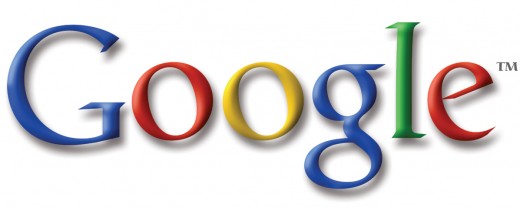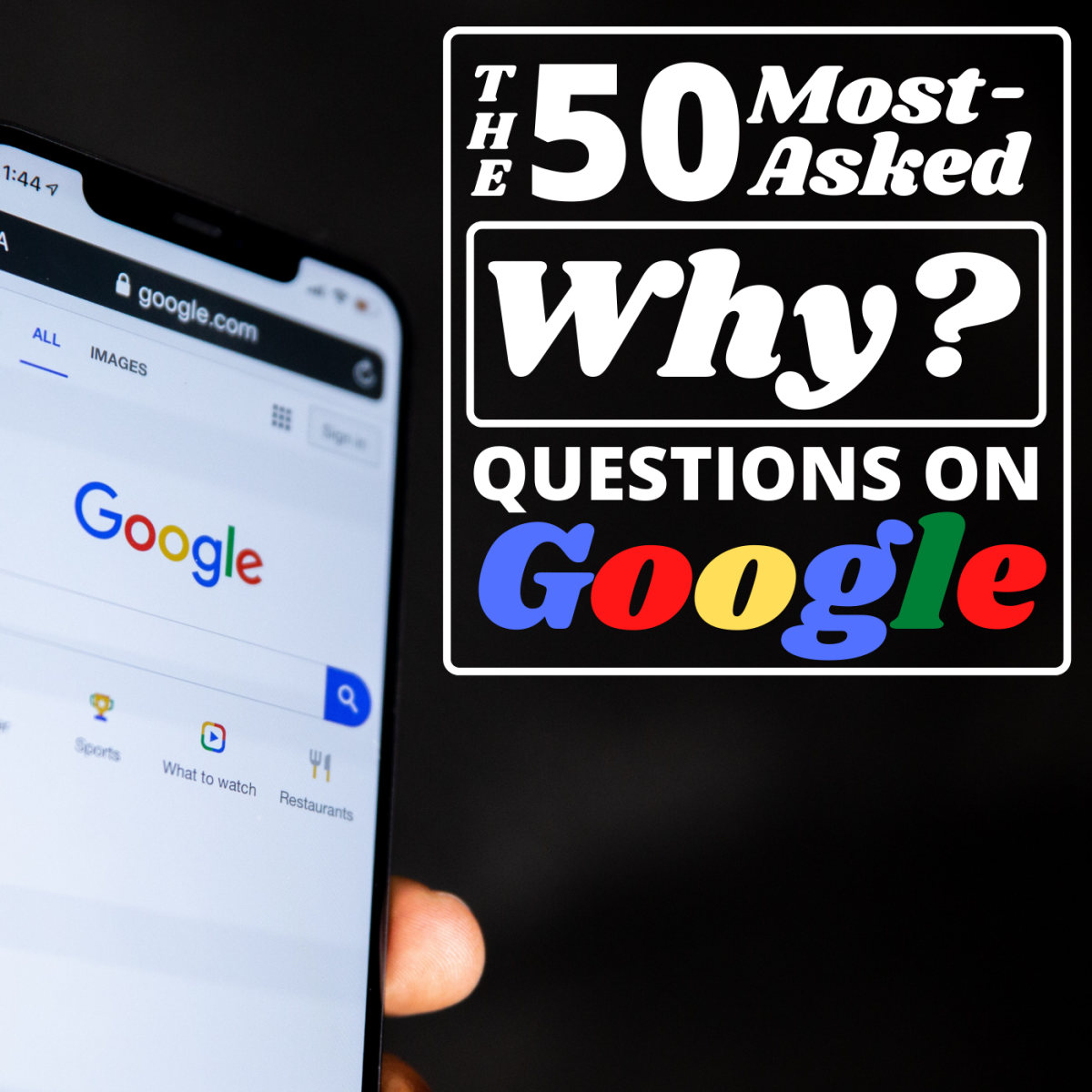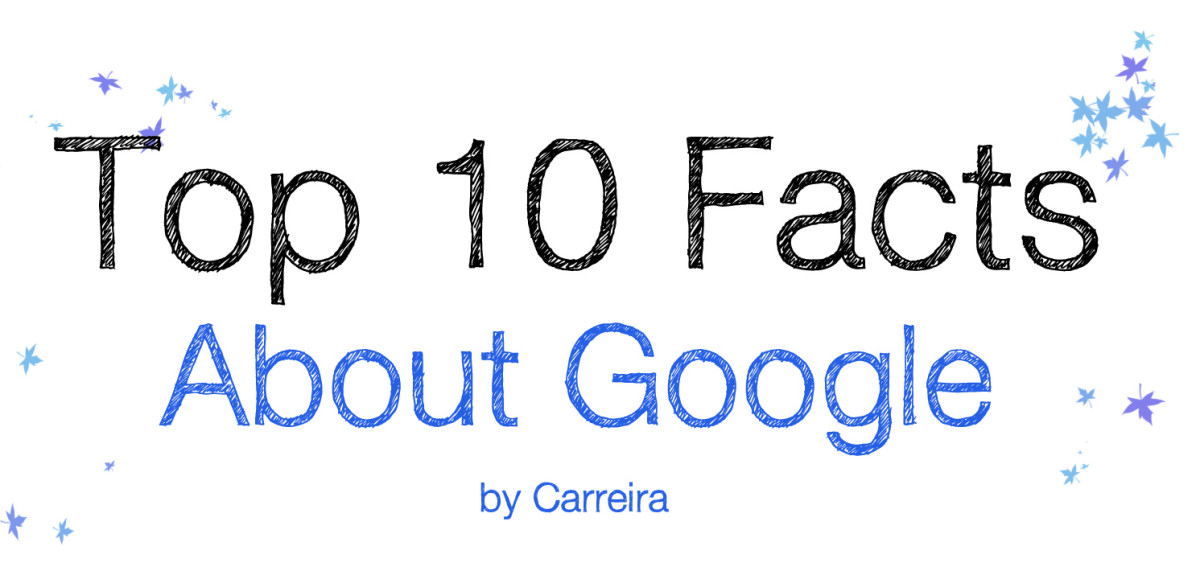- HubPages»
- Technology»
- Internet & the Web»
- Search Engines
The History of Google
Google seems to be just about everywhere today. It’s no longer just the leading search engine that everyone uses to find information on the web. It’s also got its fingers in everything from personal organization tools to wireless handset platform development. But it really wasn’t all that long ago that this big business didn’t even exist. How is it that Google got so big so quickly?
Let’s take a look at some of the major milestones in Google’s history to get a better understanding of how a company could become such a dominant business in less than fifteen years of existence:
• Two college kids meet at Stanford in 1995. Almost all big businesses form from the chance meeting of minds that ultimately leads to bigger and better things. Such was the case with Google. Back in 1995, two kids in their early twenties (Larry Page and Sergey Brin) were attending Stanford and found that they had a lot of nerdy things in common despite the fact that they also disagreed about a lot of things. This can be a great start to a good business partnership – it creates an environment in which two people with common interests and common goals can really challenge each other in order to create something better than what either of them could come up with on their own.
• Google’s co-founders launch the search engine site that will eventually become Google. This happened in 1996, just one year after the team’s initial meeting. This goes to show that go-getters are the real leaders in technology and business – these kids weren’t waiting around for things to happen. They launched a basic search engine called BackRub which they initially operated on the servers at Stanford where both co-founders were now graduate students.
• The name Google comes into existence and money starts flowing in. 1997 and 1998 were years of big development for the early Google search engine. The name Google was established, based on a nerdy mathematical concept (the googol) that most people who use Google don’t think twice about. This is when Google becomes a real business – they filed for incorporation, opened an actual office, got a start-up check for $100,000 and hired their first staff member. By the end of 1998, Google was getting recognized in the industry by leading resources such as PC Magazine.
• Google grows. The next two years of Google’s life consisted of serious development as the Internet’s leading search engine. Funding, press releases, marketing, hiring and language expansion all add to the growth of the company. At this time, Google was really focused on making sure that it stood out as the only search engine anyone wanted to use. This was crucial to the company’s ability to branch out to other areas of technology later on – first a name had to be made for itself.
• Google starts to branch out slowly with tools that are specifically related to Internet searches. When Google became ready to grow beyond just functioning as a search engine, the company started with offering tools that were useful to people who knew Google for its searches. At the end of the twentieth century, Google launched such new tools as AdWords and the Google Toolbar, features that people still use today.
• Google branches into bigger search tools. Once Google had set the stage for branching out, the company was really in a position to expand. The early twenty first century saw Google launching many different search-based tools including Google Groups, Image Searches, Google News, and Google Product Search.
• Google gets into acquisitions and partnerships. In order to expand even more, Google then began to look seriously at acquisitions and partnerships with other businesses. This is how Google really started to get involved in different areas of technology. Partnerships including those with Yahoo, AOL and Universo Online. Acquisitions included such things as the Blogger platform. These changes occurred for Google around 2002 and 2003.
• Google starts getting a name as a great company. Now that the company had reached its stellar status as a service provider in the realm of search engine tools and other online functionality, Google was in a position to start improving its PR as a business. By 2003, they had started gaining attention for practical jokes, earning awards for being a great place to work and starting to get involved in non-profit and charity work. A move to a great new space in 2004 facilitates this growth. A few months later they go on to launch free city-wide WiFi in their Mountain View, California home.
• Geolocation services start to get popular. Around 2005, Google started getting involved in the use of Geolocation services to assist people in finding their way around the world through the web. Google Maps is the big tool that people are happy to have come out of this growth.
• Mobile services start becoming important to Google. Around the same time that Google was getting involved in geolocation services, the company was also focusing heavily on making its sites and search engines friendly for the increasing number of cell phones that were becoming capable of accessing the mobile web. This literally put Google at people’s fingertips all day long.
• Google adds many new searches. The thing about Google is that they didn’t stop focusing on what they do best – online searches – despite their growth in these other areas. 2006 was a big year for additional search tools including Google finance, Google Romance, Google Patents, Google Earth and Google Book Search. This was also the year that Google got involved with YouTube.
• Google gets into mobile phone platform development. By late 2007, Google had announced that it was creating its own open source mobile phone platform. The company opened up a challenge to developers to work on this phone. The phones are now starting to be released which increases Google’s visibility in the wireless world as well as further establishing positive connections for Google within the tech development company.
So, that’s how Google has grown so quickly over the last decade or so. It started as something small but with a team that was willing to challenge themselves and each other. An eye towards doing one thing (online searches) really really well helped to establish credibility for Google and move things forward rapidly. Attention to cutting edge areas of technology throughout the company’s development (without taking away from the core product of online searches) has allowed Google to really dominate this industry. It’ll be interesting to see what comes next from this always-growing business!
What's Your Favorite Search Engine?

- History of Google - Wikipedia
- Search Engine History.com
A comprehensive overview of the history of search engine technology companies. Read about search's origin in 1945 and innovation through today. - Googling Yourself as an Author | Real Words
How authors can make use of Google's search engine. - Corporate Information - Google Milestones
Major resource for information found in this article. - 50 Useful Google Apps for Writers
Google apps that are great for anyone who wants to write for the web.









